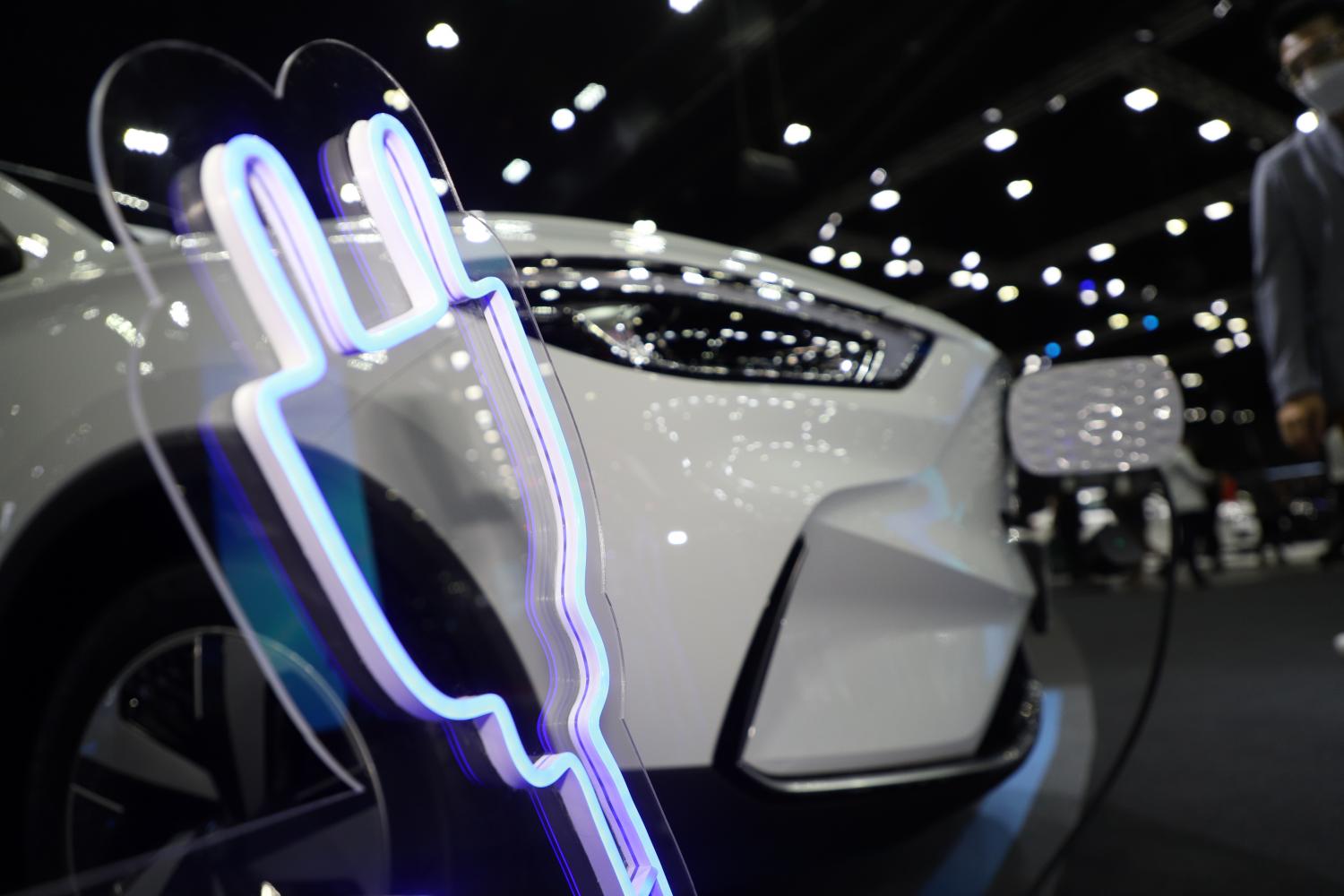
Bookings for 5,800 electric vehicles (EVs) at the Thailand International Motor Expo are providing fuel for the government's ongoing efforts to develop the domestic EV industry.
The EV total made up 15% of all car bookings, which tallied 36,679 units during the 12-day car event that ended on Dec 12, according to the organiser.
Chinese EVs were the most popular among prospective buyers, partly because their manufacturers have joined the government's EV incentive scheme, which includes tax cuts and subsidies, said Industry Minister Suriya Juangroongruangkit.
"The EV market in Thailand has grown rapidly since the cabinet approved the package worth 2.9 billion baht," he said.
In February the cabinet approved subsidies ranging from 70,000 baht to 150,000 baht, depending on the types and models of vehicles, in a bid to stimulate EV consumption and production between 2022 and 2023.
Expensive fuel and new EV models are also among the factors that have pushed up sales.
The government plans to launch more measures to boost the EV industry and will ask the Thai Industrial Standards Institute to work on new standard criteria for EV parts, said Mr Suriya.
During the expo, BYD received the highest number of EV bookings with 2,714, followed by GWM's Ora Good Cat (1,212), Neta (827), MG (600) and Volt (210), said Kwanchai Paphatphong, president of Inter-Media Consultant Co, which organised the car event.
All the brands are Chinese auto- makers.
Porsche received bookings for 70 EVs, followed by Mini with 32, and Mercedes-Benz and Pocco had 30 bookings each.
Mr Kwanchai expects the expo, which was visited by 1.3 million people, to generate purchase value of 5.1 billion baht.
Global car manufacturers in Thailand predict the expo will help boost their sales.
From January to October, car production in Thailand increased by 12.3% year-on-year to 1,534,754 units, according to the Federation of Thai Industries' Automotive Industry Club.
The full-year production target has been set at 1.75 million units, down from an earlier forecast of 1.8 million units, because expectations of greater production for domestic sales have not offset a drop in exports, amid geopolitical conflicts and lower consumer purchasing power.
The global semiconductor shortage has also hindered car production.







